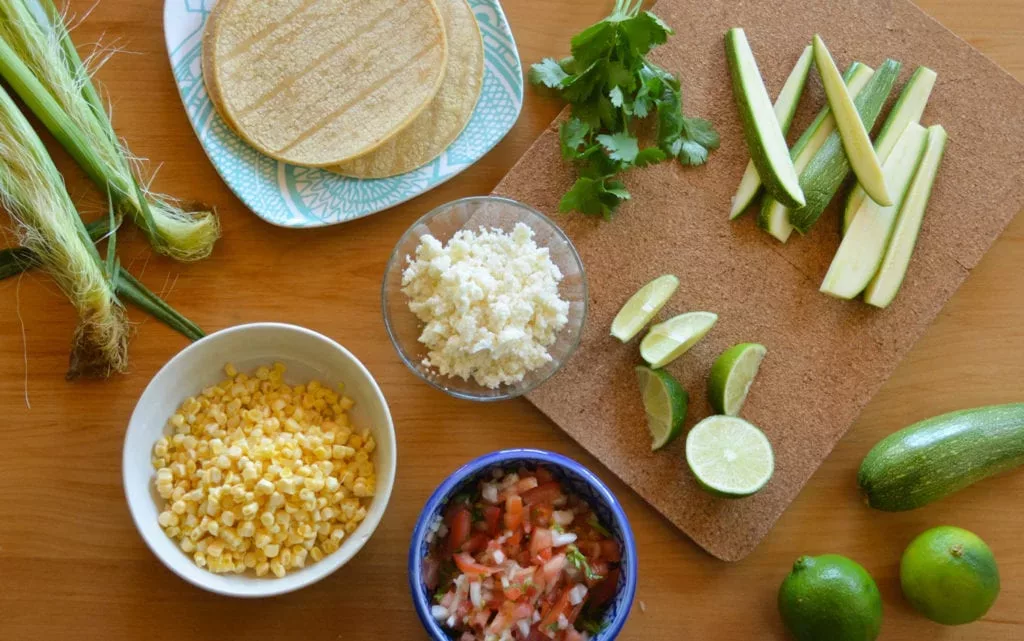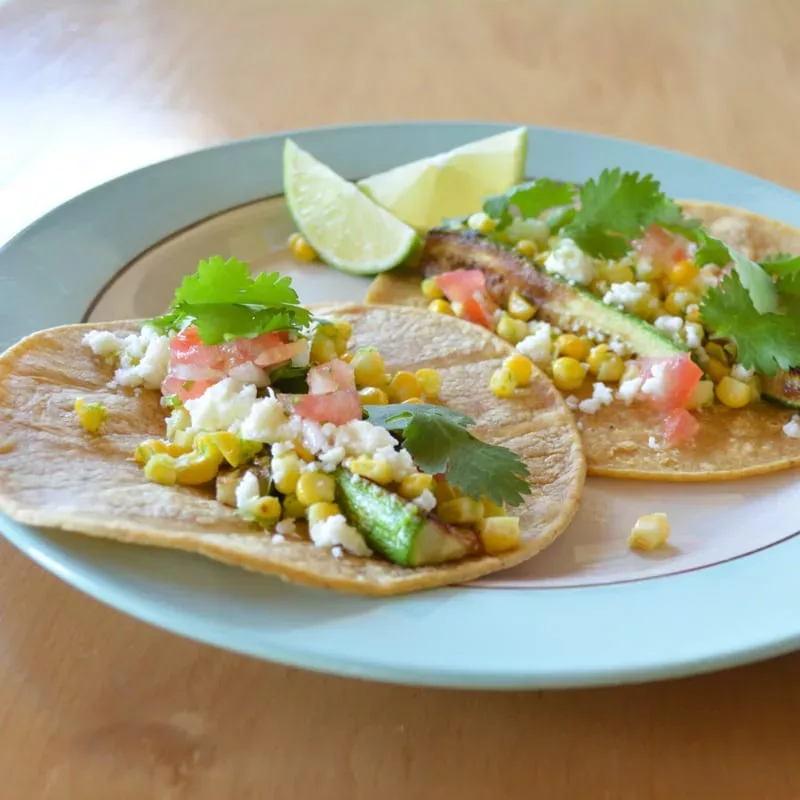It’s summer! Abundance is everywhere! The markets are overflowing with seasonal delights from every corner of Kingdom Plantae. We’re up to our ears in corn, up to our knees in peas, and up to our heads in lettuce (I could go on, but don’t worry, I won’t). And not only are these botanical delicacies at their lowest prices of the year, they are also at peak deliciousness.
So why, when all of this amazing produce abounds, does our typical summer backyard picnic fare consist mainly of hamburgers and hot dogs—including the “fruits of the season” only as an afterthought, if at all?
The answer, counterintuitively, may be traced to the very abundance that we enjoy here in the U.S.
While we are home to only 4.5 percent of the world’s population, we have 11.5 percent of the world’s farmland—more than any other country. And while that hardly seems like a problem, it has enabled us to devote a staggering 67 percent of our arable land to crops—mainly soy and corn—that feed livestock, not people. This, along with the alarming rise of factory farming, has led to an incredible abundance of cheap meat. It has also contributed to the development of a cuisine that is among the least sustainable and, forgive me for saying, least interesting in the world.
Don’t get me wrong, some American food is great. I mean, southern barbecue has to rank up there with Beethoven’s Ninth as one of the supreme achievements of humankind. But, as renowned chef and farm-to-table pioneer Dan Barber points out in his terrific book, The Third Plate, most of the world’s great cuisines were born from hardship, not abundance.
The relative scarcity of farmland in countries like Mexico, Italy, and Thailand has required people there to grow a greater proportion of their crops for human consumption, which is a far more efficient method of extracting calories from the soil than raising livestock. It has also encouraged their much more varied, plant-heavy cuisines. And, let’s face it, if variety is the spice of life, then American life, at least culinarily speaking, is pretty bland in comparison.
So, if we want to develop a truly sustainable, world-class American cuisine, we need to start giving plants their day in the sun.

Ingredients
- 1 large zucchini or summer squash
- 1 large ear of corn
- 2 cloves thinly sliced garlic
- 3 limes, 1 zested, 2 quartered for garnish
- 1 tablespoon oregano leaves
- ¼ cup olive oil, plus 1 teaspoon, divided
- salt
- tortillas
- ½ cup grated cotija cheese
- red salsa
- cilantro leaves for garnish
Method
- Trim ends and slice zucchini lengthwise in half, continue halving lengthwise into eight equal spears. Slice each spear in half crosswise resulting in 16 thick wedges. In a bowl, combine zucchini with garlic, oregano leaves, ¼ cup oil, and a large pinch of salt. Marinate for about an hour.
- Meanwhile, remove corn husk and chop off the bottom stem end of the cob to make a flat surface. Holding the ear upright, carefully cut vertically down the ear to remove the kernels. Place in a bowl. Add 1 teaspoon of oil and a pinch of salt. Stir to combine.
- Once zucchini has marinated, heat a heavy frying pan (preferably cast iron) over medium high heat until very hot. Add corn and smooth to an even layer. Let fry, without stirring, for 30 seconds or until corn begins to blacken slightly. Remove to a bowl and stir in lime zest.
- In the same pan add about half of the zucchini (don’t overcrowd) cut side down. Cook for about 30 seconds, just until it takes on a little color, then flip to cook the other cut side the same way. You want the zucchini charred on the outside, but still firm on the inside. Remove to a plate.
- Assemble the tacos. Add one or two pieces of zucchini to a tortilla. Top with corn, red salsa, some cotija cheese, and cilantro leaves. Squeeze a little lime juice over each and enjoy!
